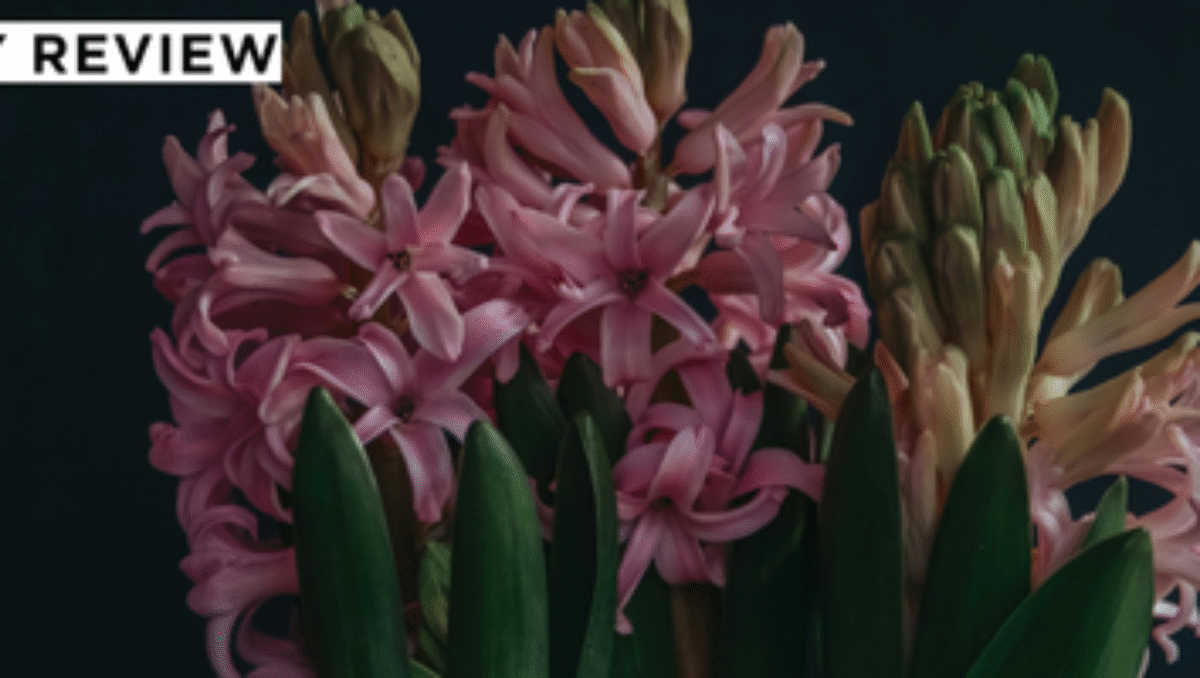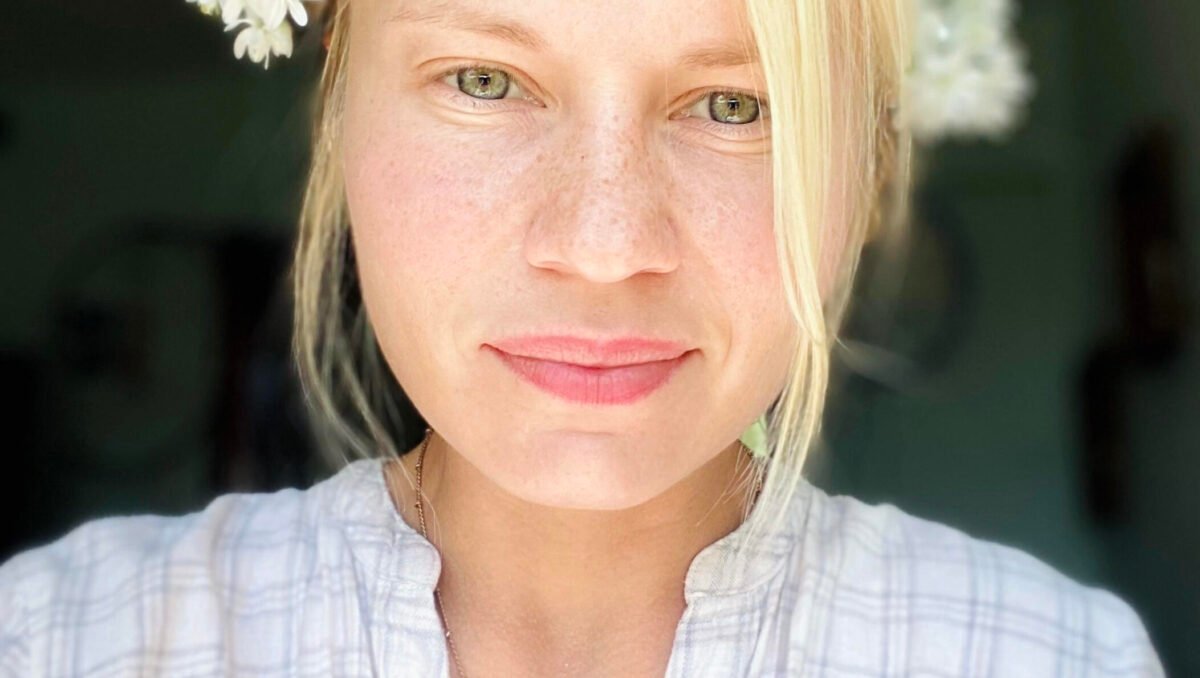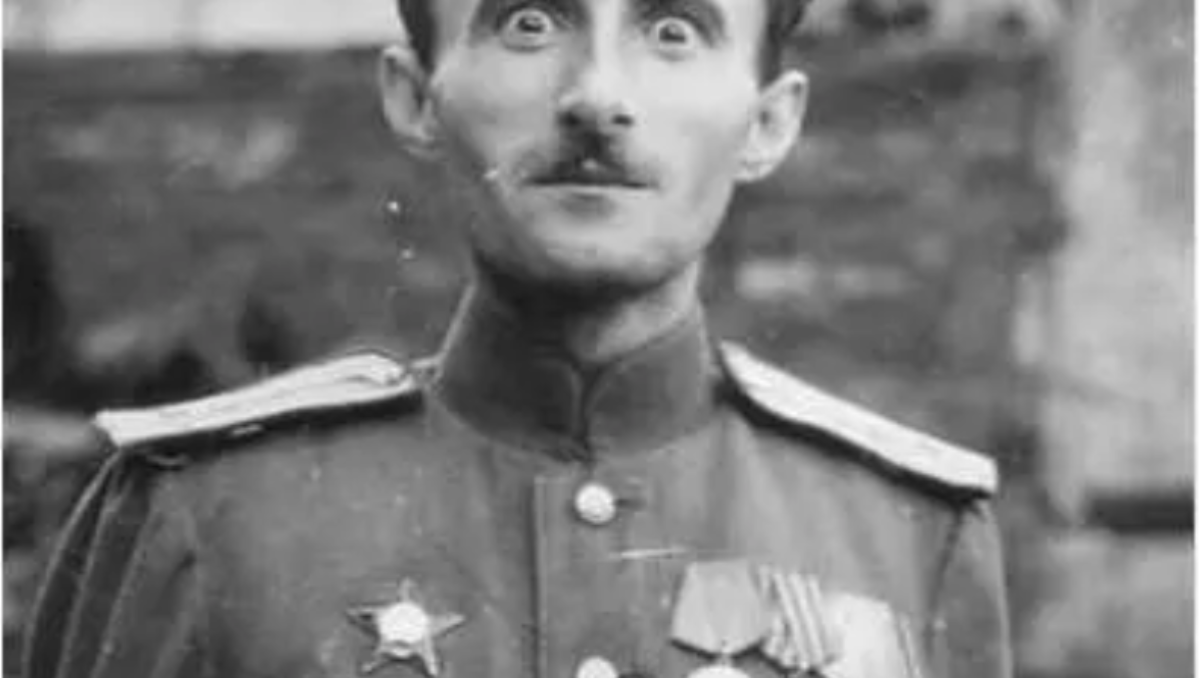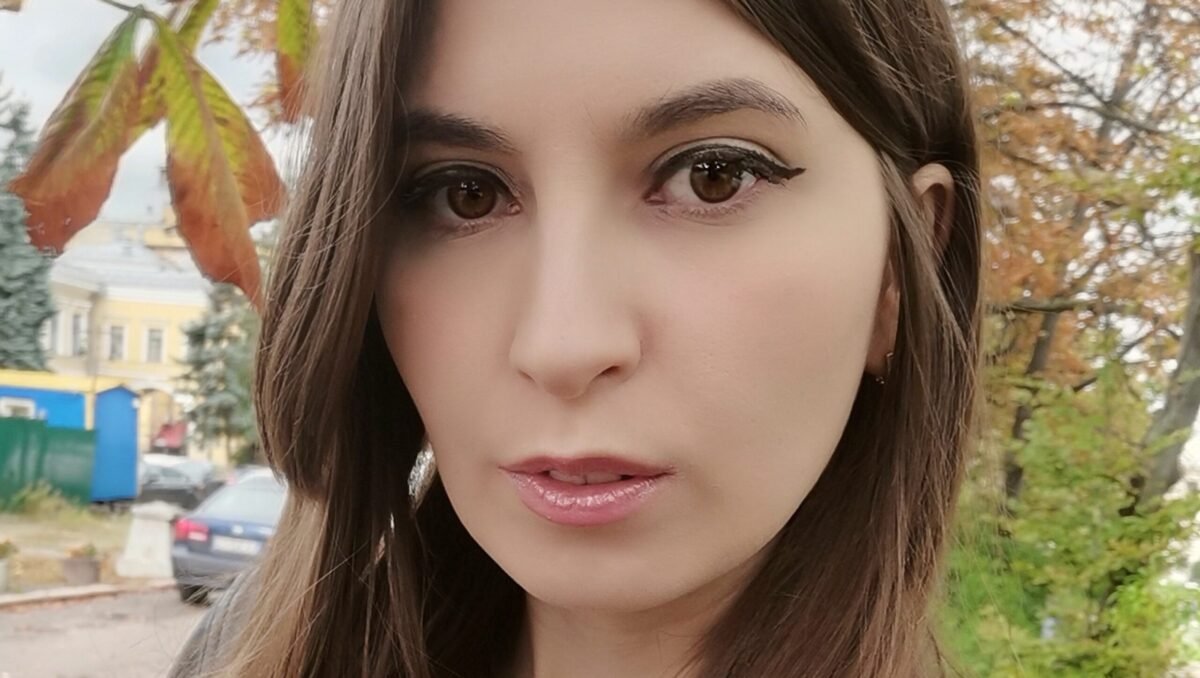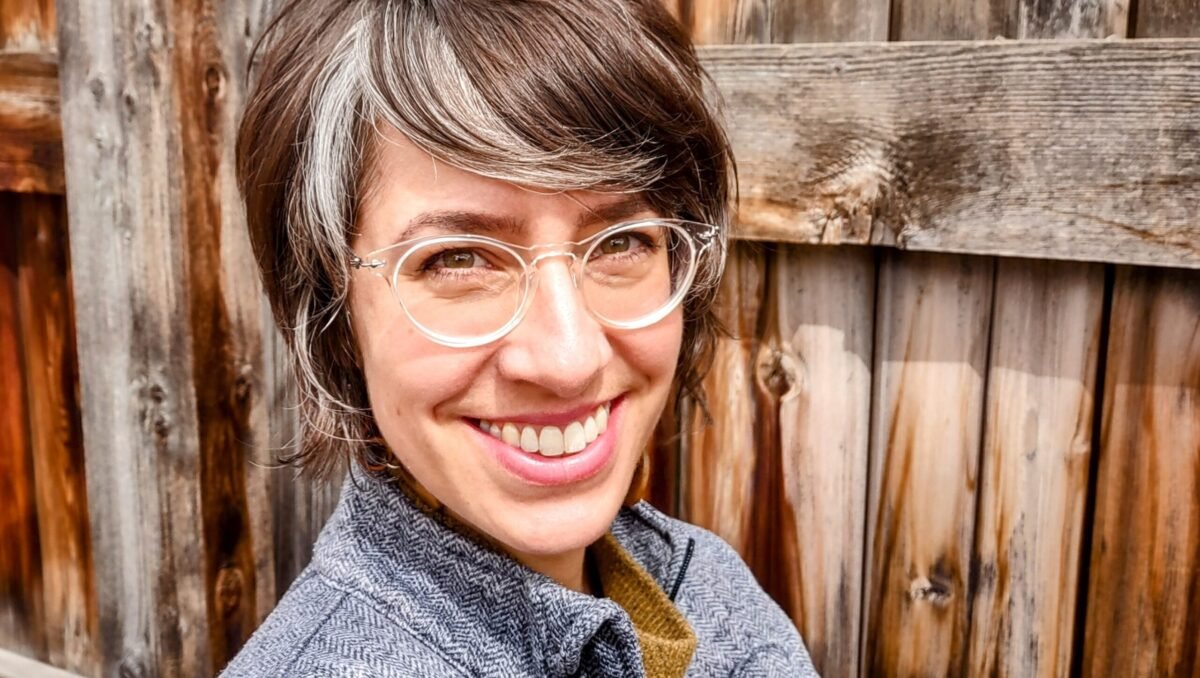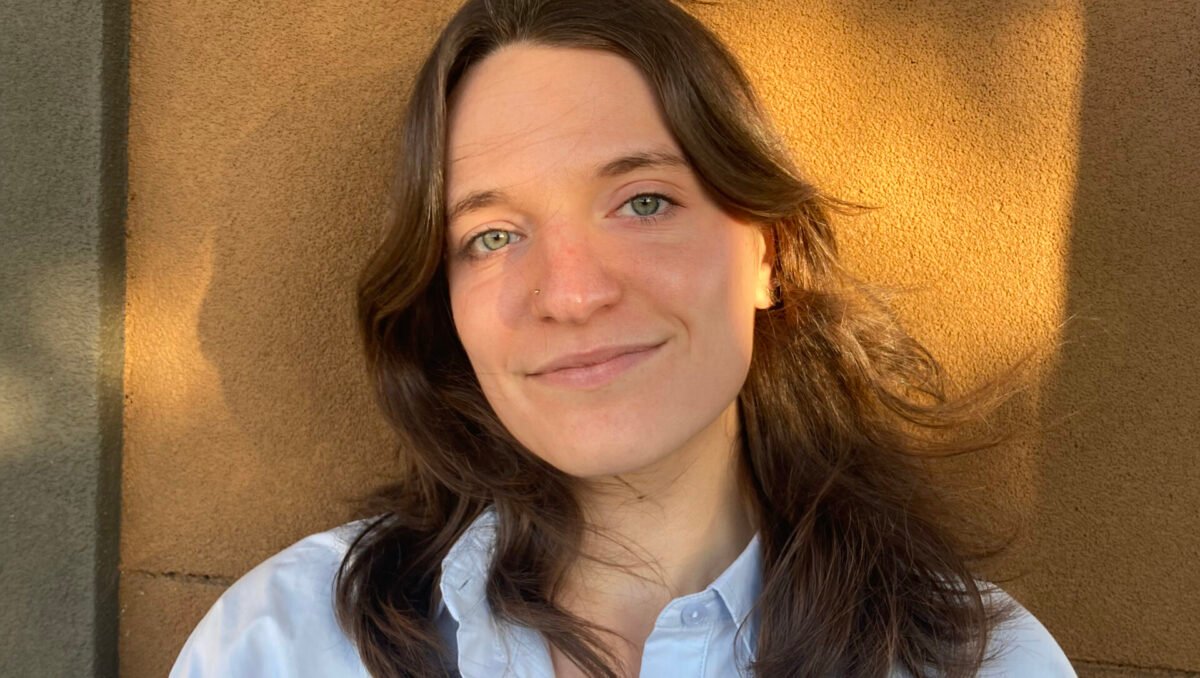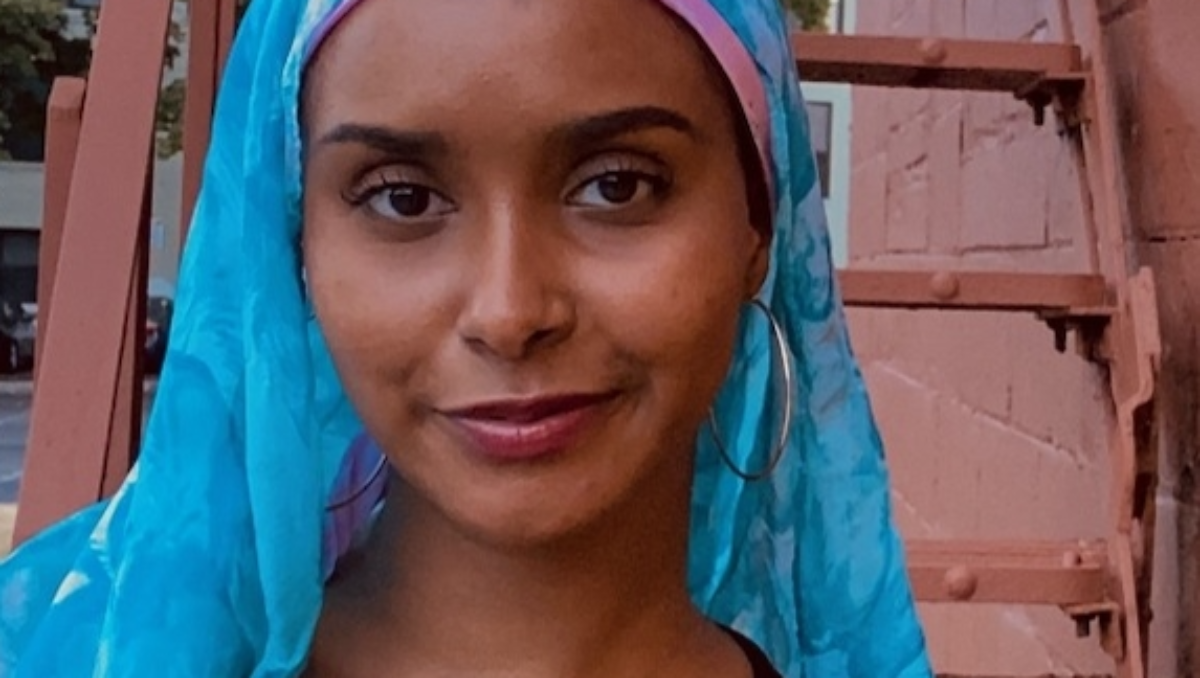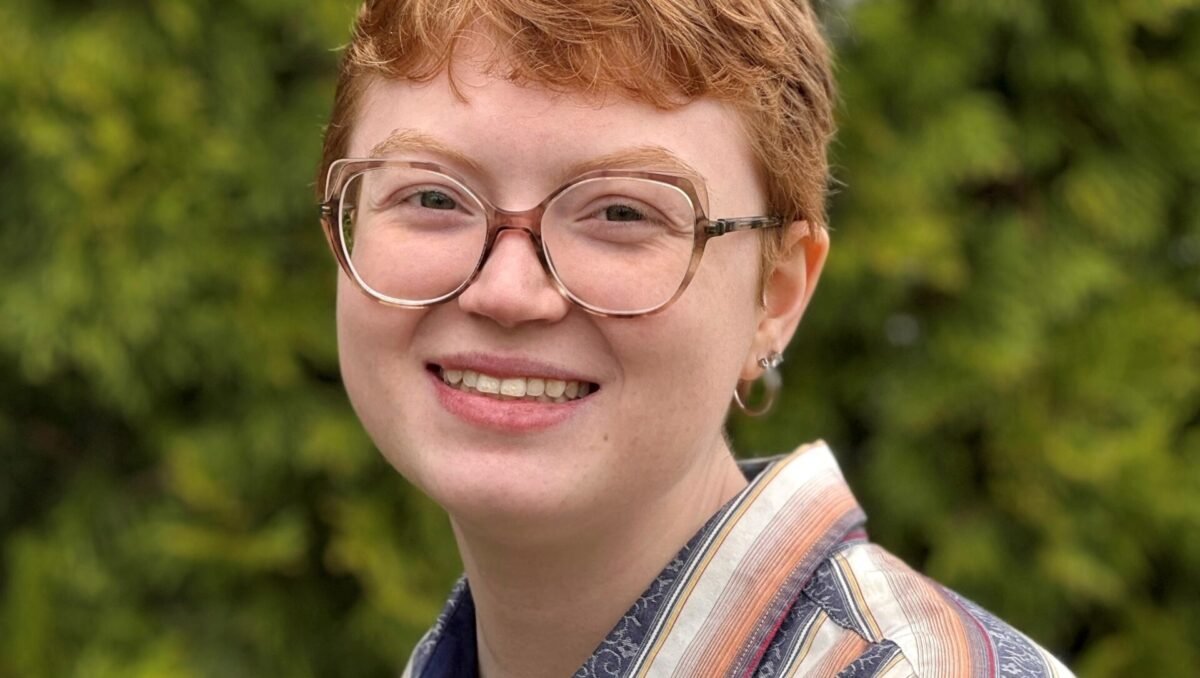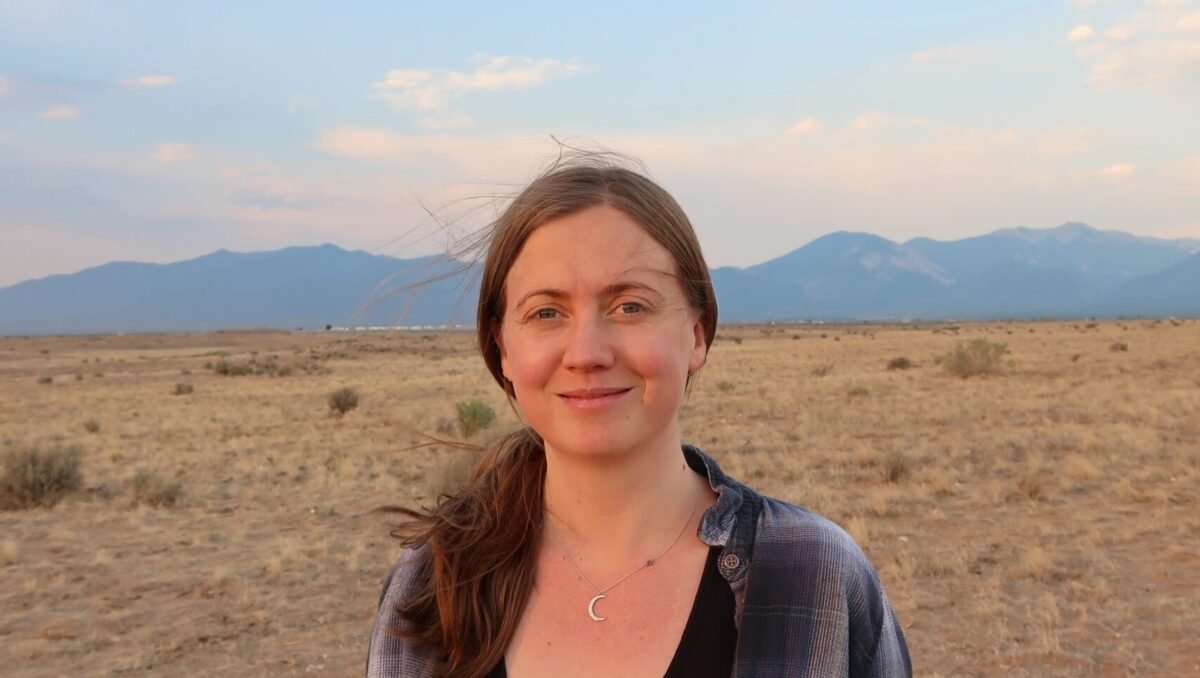ISSUE 32
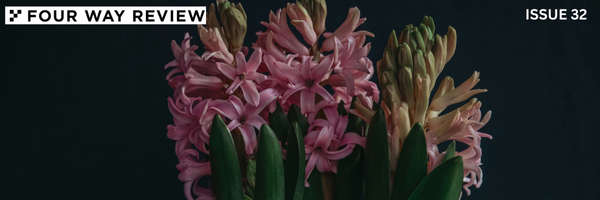
POETRY
THREE POEMS by Nasim Luczaj
TWO POEMS by Stefanie Kirby
TWO POEMS by Shams Alkamil
TWO POEMS by Jill Kitchen
A CASE FOR SELF-HARM by Rob Macaisa Colgate
WHALE SONG by Rebecca Uhlman
SEA LAMPREY by Sofia Fall
HERRING GULLS by Rachel Trousdale
WE ARE ALL NAMED AFTER SOMEONE by Matthew Zhao
FICTION
NOW WHO WILL WATER THE GARDEN by Grace Holmes
TWO STORIES by Josh Bell
TRANSLATION
MY BOYFRIEND’S MOTHER-IN-LAW by Zsófia Czakó, translated by Marietta Morry and Walter Burgess
TWO POEMS by Ekaterina Derysheva, translated by Ryan Hardy, Asher Maria, Kevin M.F. Platt, and Timmy Straw
REFLECTION by Cho Ji Hoon, translated by Sekyo Nam Haines
THREE POEMS by Yan Satunovsky, translated by Ainsley Morse and Philip Redko
THREE POEMS by Ekaterina Zakharkiv, translated by Venya Gushchin, Kevin M.F. Platt, Ainsley Morse, Eugene Ostashevsky, and Elaine Wilson
ART
Credit: Photo by Anita Austvika on Unsplash
- Published in All Issues, home, Issue 32
THREE POEMS by Ekaterina Zakharkiv, translated by Venya Gushchin, Kevin M.F. Platt, Ainsley Morse, Eugene Ostashevsky, and Elaine Wilson
Sky: fucked, because open. occupied, recognized as an extremist organization, acting as a foreign agent, banned on the territory of the Russian Federation.
bringing discredit to actions
with words. what can you do about the sky with words?
don’t look up, don’t cross its borders, don’t read paul celan under its vaults.
the pre-dawn sky hums, coming down without warning.
it is no longer a metaphor, no longer the generalization of an engagement.
blind we wound up wounding the residential district. we were hammering the unarmed.
disengaged from our sense of smell we didn’t mark the smell of black smoke.
the event took us by surprise.
it’s just not the time for quotation marks. all quotation marks have been welded together into anti-tank obstacles made of I-beams. nevertheless
days go by and we carpet the footstool of myth with neverroses. what have we seen with our own eyes? a broadcast shot with a billion bloods. childhood dreams sprouting into political imagination in airports and hotel rooms. the shell hole of what once was a tongue sucks in glass shards, claps corridors closed. it speaks no longer. it states neither its name nor address. in the hollows of its house hisses an orange serpent. a noonestongue once again
Translated by Eugene Ostashevsky
somebody’s car froze in place. many times in a row
and later, tearing away from the shadow
against the wave
the main thing up to the present hour will happen after
what has happened will happen after. we will photograph them, count them all
hug them, that is to say, imagine hugging them, but anonymously, in a rare meter,
maybe in some basements of an extraordinary hypothesis, prognosis, beneath a thousand suns
everything has been called external. neither traction nor a possible border
i only touch options as i diminish in publicity. this news is a blind pause in the snow.
snow screws itself into the narrow space between the bombers
and the little bell, raised at the school assembly
you, protestor of crushing grief: nailed to love, with love
and the telephones
demand readiness for prostration
they feel it differently somehow
walking around the back of the screen
[in reality they already cannot be recounted]
at the animals’ work party
even the lions of suppression speak in riddles
if you go along goncharnaya
along prechistinka, along volkhonka
if you stay mum on molchanovka
they won’t cleave their rib cages wide open
moreover, it’s unclear: at midday, black
gets completely overgrown with eyes
Translated by Venya Gushchin
with Kevin M. F. Platt and Ainsley Morse
red wind
pulls up the final slides:
“forgive me, history”;
“sleep, love”; “don’t pass through me”.
the presentation under the name “a parabola of soot, ashes” /
“flight routes of smoke, points and approaching lights”
in heated inundations. this weekend—how to distinguish
disappearance. death—that’s the topic.
does happiness need the dead, do the dead need freedom. they
don’t remember names.
because the maps of murmuring, across which we run,
are erased. apparently falsifications.
not moving. they were someone:
in headphones, a baseball cap, on abandoned tillage.
mouths stuffed full of fragments.
hands once full of tenderness now hold ores, minerals.
words—they are distances in relation to the world.
to hide movements. a hound, Interfax.
coordinate zero. the specter of supposition.
Translated by Elaine Wilson and Eugene Ostashevsky with Kevin M. F. Platt

Venya Gushchin is a poet, translator, and PhD candidate at Columbia University, studying Russian literature.

Kevin M. F. Platt is a professor of Russian and East European Studies at the University of Pennsylvania. His translations of Russophone and Latvian poetry have appeared in Asymptote, World Literature Today, Jacket2, and other journals, as well as in a number of books. He is founder and organizer of the Your Language My Ear translation symposium.
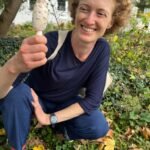
Ainsley Morse teaches in the Literature department at UC-San Diego and translates from Russian, Ukrainian and the languages of former Yugoslavia. Her research focuses on the literature and culture of the post-war Soviet period, particularly unofficial or “underground” poetry, as well as avant-garde aesthetics, children’s literature and contemporary poetry. (Headshot credit: Lee Wong)

Eugene Ostashevsky is a poet and the author of The Pirate Who Does Not Know the Value of Pi, and The Feeling Sonnets (both published by NYRB Poets). As a translator, he works mainly with avant-garde and experimental literature in Russian. (Headshot credit: Una Ostashevsky)
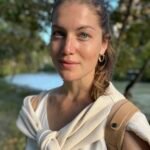
Elaine Wilson is a translator, writer, and educator. Her research examines Russophone Soviet and Yiddish literature, the intersection of Russian Christian Orthodoxy and nuclear power, and religious iconography and its use in political messaging. She lives in New York City.
- Published in Issue 32
THREE POEMS by Yan Satunovsky, translated by Ainsley Morse and Philip Redko
Once I was followed by a cow.
At that time I was stationed
with a division. In early morning, quiet, shtum,
making my way to the forward site, I heard:
someone coming up behind me
and wheezing like a sick man:
I turned around — it was a cow;
dappled, two horns; no distinguishing features to speak of.
May 1946
A man I had occasion to affront
was killed by a bullet through the mouth at the front.
He wasn’t picked up, wasn’t dragged out through the dirt.
The shrapnel dissolved in the Kaluga earth.
I’m a live wire.
I lived through the war.
I’m alive.
I live with my wife.
I live.
What does he remember, that man, about me?
Why is he watching
from beneath the visors of his brows?
1947
The old city was blown up by the Germans.
The sidewalks shuddered, torn to bits.
I ran through the smoking ruins.
I’m still running, never quit
run and run…
Still and quiet, head kept down,
I walk through the New City.
It’s a story taller and more pretty.
I don’t even want to see it,
can’t bear it…
29 May 1961, Dnepropetrovsk
 Ainsley Morse teaches in the Literature department at UC-San Diego and translates from Russian, Ukrainian and the languages of former Yugoslavia. Her research focuses on the literature and culture of the post-war Soviet period, particularly unofficial or “underground” poetry, as well as avant-garde aesthetics, children’s literature, and contemporary poetry. (Headshot credit: Lee Wong)
Ainsley Morse teaches in the Literature department at UC-San Diego and translates from Russian, Ukrainian and the languages of former Yugoslavia. Her research focuses on the literature and culture of the post-war Soviet period, particularly unofficial or “underground” poetry, as well as avant-garde aesthetics, children’s literature, and contemporary poetry. (Headshot credit: Lee Wong)

Philip Redko is an editor and translator based in Sofia, Bulgaria. With Ainsley Morse, he edited and translated Yuri Tynianov’s Permanent Evolution: Selected Essays on Literature, Theory and Film (ASP, 2019). (Headshot credit: Maria Vassileva)
- Published in Issue 32
REFLECTION by Cho Ji Hoon, translated by Sekyo Nam Haines
In this dark night, someone stands at my window,
stares into my room. Who is it?
Not a word, only heart-piercing eyes,
someone is there to protect me. Who is it?
The night’s pitch-darkness wakens all things. My secrets,
unable to hide, flash in the blue phosphorescent light.
The many nights, when I sweat from crushing anxiety,
someone stands at my window, keeps watch over me.
O, whoever keeps a watch over me every night,
by dawn, when I finally slaughter all my guilty thoughts
and open my window, like opening my heart, then,
I see him fade away into the whitening darkness. Who is it?
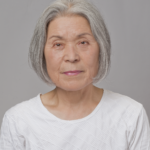 Sekyo Nam Haines immigrated from South Korea to the U.S. in 1973 as a registered nurse. She received her BA in American literature and writing at Goddard College ADP. She continued her study of English literature at the Harvard Extension school and poetry with the late Ottone M. Riccio in Boston, MA. Her first book, Bitter Seasons’ Whip: The complete Poems of Lee Yuk was published by Tolsun Books (2022). Her poems and translations have appeared in Lily Poetry Review, Off the Coast, Hayden’s Ferry Review, Anomaly, and Guernica, Common, Lit Magazine and Gulf Coast Review and elsewhere. Sekyo lives in Cambridge, MA.
Sekyo Nam Haines immigrated from South Korea to the U.S. in 1973 as a registered nurse. She received her BA in American literature and writing at Goddard College ADP. She continued her study of English literature at the Harvard Extension school and poetry with the late Ottone M. Riccio in Boston, MA. Her first book, Bitter Seasons’ Whip: The complete Poems of Lee Yuk was published by Tolsun Books (2022). Her poems and translations have appeared in Lily Poetry Review, Off the Coast, Hayden’s Ferry Review, Anomaly, and Guernica, Common, Lit Magazine and Gulf Coast Review and elsewhere. Sekyo lives in Cambridge, MA.
- Published in Issue 32
TWO POEMS by Ekaterina Derysheva, translated by Ryan Hardy, Asher Maria, Kevin M.F. Platt, and Timmy Straw
*
a wave of uneasiness twists
the room’s cube unwinds in a chain of noise
walls’ origami contracts into hummocks like hedgehogs
contradictions of altitude
the outcrop presses man
into the clouds of trees
Translated by Ryan Hardy, Kevin M. F. Platt, Timmy Straw
protocol peonies
*
dew’s perspective
the lens observes a retinal path
from the birch leaf’s center
to the edge and back
the image is absorbed
exfoliating the impression
with a blink
<protocol peonies>
Translated by Asher Maria and Kevin M. F. Platt
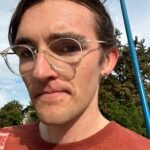
Ryan Hardy is a translator, educator, and Master’s candidate at University College London’s School of Slavonic and East European Studies. He has held various writing and editing positions for the School of Russian and Asian Studies, Pomona College Vestnik, and DoubleSpeak Magazine.
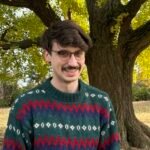
Asher Maria is a Ph.D. student in Comparative Literature & Literary Theory at the University of Pennsylvania. Their work in translation focuses on Lithuanian, Russian, and Portuguese writing. They were a 2024-25 Emerging Translation Mentorship winner with the UK’s National Centre for Writing.

Kevin M. F. Platt is a professor of Russian and East European Studies at the University of. His translations of Russophone and Latvian poetry have appeared in Asymptote, World Literature Today, Jacket2, and other journals, as well as in a number of books. He is founder and organizer of the Your Language My Ear translation symposium.

Timmy Straw is a poet, musician, and translator from Oregon. A graduate from the Iowa Writers’ Workshop, their first poetry collection The Thomas Salto was published by Fonograf Editions in 2023, and their work has appeared in Harper’s, The Paris Review, Annulet, and Yale Review.
- Published in Issue 32
MY BOYFRIEND’S MOTHER-IN-LAW by Zsófia Czakó, translated by Marietta Morry and Walter Burgess
This is from a set of linked stories. The stories alternate between the narrator as a child in a small town in Hungary attending a private Roman Catholic school, and when she is living in Milan and working as a cashier in the famous cathedral.
I was heading to get the change from the guard’s station but I carefully checked the job schedule to know where to find him, Raffaele. That day he was working in the audio guide booth; I pictured him as he was sitting there with his beautiful profile and open, intelligent look, and I knew that the same thing would happen that had been happening whenever he was in my vicinity, my stomach kept moving up and down as if some heavy object was rising and falling inside me; I gasped for air, moved about awkwardly and couldn’t decide what to do, go up to him or not. I decided not to approach him, only get near his booth and pass by him like someone on an important mission and not at all like someone who wanted to show herself in a dress that he hadn’t seen before, but when I got there and passed by him, he bent down for something and didn’t notice me and I had to go to pick up the change and couldn’t gauchely linger any longer.
There must have been some panic connected with being thirty, it could be the quarter life crisis, at least some newspaper called it that, this ridiculous circumstance, that at the age of thirty I am in love with a twenty-two-year-old university student colleague in the booth. Of course, I wasn’t in love, but I sweated and trembled when I spotted him, like in high school when I was in love with Dani, even though I wasn’t in love with him either, after all I had another love later I was faithful to, just like in Milan, I had my Italian boyfriend, my wonderful Italian boyfriend, who was to pick me up that evening, this splendid man who sent a message that he would pick me up to save me from taking the tram, because he didn’t want me to get on a tram or to walk, even though I assured him that day as well that I liked to take the tram, I liked to walk, and I liked to be by myself, then he replied that in that case he would pick me up take me to the tram station and would drive along the tram tracks and I could transfer into his car where I get off, and he would drive me home, he said, jokingly and amiably, that wonderful, funny, kind and patient Italian boyfriend of mine, because he didn’t understand that he didn’t need to pick me up, didn’t need to drive me home, he didn’t need to, he didn’t need to.
When my mother and her girlfriend spent a few days at our place, I thought I would go crazy. Ever since I had been living in Milan, my connection to those at home was limited to Skype calls and to the questions and replies that were familiar to the point of boredom, how I was, what I was doing, how was the job, when will I find another one, and, most importantly, how was my dear, dear, one and only, wonderful Italian boyfriend, but before I could answer, my dear, one and only, wonderful boyfriend appeared in the background and then my mother screamed, shouted his name, and almost in a trance, she summoned him to the screen. My boyfriend obliged. He came happily with his eyes shining so that they could greet each other filled with love, and while they were chirping there, I had the feeling that the computer, the speakers and the monitor were about to melt, then they looked at each other for a long time, my mother said something in Hungarian that my boyfriend didn’t understand so I translated it, then my boyfriend replied and I translated that, too, until they both started talking at the same time and I got up to pee and I could hear from the toilet, as my mother shouted in Hungarian and my boyfriend in Italian asking where I went, why I left them, and then I had to rush back to translate that extremely interesting conversation. After the conversation my mother and my boyfriend exchanged emoticons through chat windows, little hearts, laughing and smiling benevolently, because my mother felt so happy. Once I will be a mother, I, too, will understand how happy it makes a mother when someone loves her child so much, she said, and she asked me never, ever to hurt this man, this golden man who won over all my mother’s friends on her fiftieth birthday by barbecuing meat, serving it, then dancing, he was the highlight of the evening and I was the luckiest person in the world for having such a wonderful boyfriend, and my mother’s girlfriends asked if there was some older version of this man they could compete for, except that I couldn’t understand why I didn’t feel lucky, on the contrary, why this wonderful Italian boyfriend irritated me to death; what was the matter with me, what was the matter?
I didn’t get days off and I didn’t ask for days off during my mother’s visit. Those who don’t ask, don’t receive and I didn’t ask, although all I told my mother was that I didn’t get them, to which she told me, of course, even a mother can’t understand a child who doesn’t speak up, I should have asked for it and I would have gotten it.
I didn’t understand why I wasn’t glad that my dear mother would visit me in Milan with her girlfriend and bring me túrórudi, and I loved that darn túrórudi, and loved my mother who brought me up, fed me, loved me, but I replied: Mother, please don’t come, I beg you, don’t come, you’re asking why, because I am not in the best of mood, my wonderful Italian boyfriend irritates me; yes it is possible because he is glued to me, because I can’t breathe because of him, and this is not attentiveness, mother, I am not being ridiculous, yes, I know that I used to love him, but that was a long time ago, and now he irritates me, his attentiveness, his caring, his devotion, once upon a time I used to love cotton candy and suckers, all right bring me some suckers, I will keep quiet, just come.
There they were standing in front of the booth with my boyfriend, who had been dragging them to all the ice cream places, restaurants and clothing stores of this wonderful Italian city, and this made my wonderful Italian boyfriend even more wonderful, a good Samaritan, whose joy in life is to satisfy the wishes of others, he is indeed such a wonderful man.
I heard that my mother told the others, look the line is longest in front of her wicket and I saw, as she snuck over and took a picture of me and handed me the camera and asked me, in a whisper, to take a picture of them as they were standing in line in front of me, and I took a picture as they grinned while an odd looking man with his odd looking family was asking whose statue was standing at the top of the cathedral and who was the Virgin Mary, and who was Jesus Christ, and what should they know about them.
My mother and company were waiting patiently for their turn, they got their tickets and from that point on they did exactly what everyone does except they may not have asked who the Virgin Mary was, and what she was doing on the top of the cathedral. While still in front of my wicket, my mother opined that it was not normal to ask money to visit a church and, to make things worse, in such a demeaning way, selling tickets from such a decrepit booth, one of which could not even be found because it was hidden on the other side of the cathedral, but she also added that she was sure they would not change a system that was working, albeit in a clumsy sort of way, but was profitable. I saw them snickering at the main entrance, but, in front of the Porta Santa in a dignified pose with their hands clutched together, and then taking pictures while standing in line to go up to the terrace or go the toilet. In the evening they showed me these pictures while my wonderful boyfriend was transporting his cousin around in the city, because it was pouring rain, and although he didn’t feel like driving to the other end of Milan at midnight for that idiot Alessandro, as he told me at the door, he did it because he was a wonderful man who could be asked to do anything, any time, who would do everything for his family, and while he was driving around in the city, my mother was in seventh heaven because I had a boyfriend who could be asked to do anything, but I didn’t understand that if he can be asked to do anything, why can’t I ask him to leave me alone for a second and why doesn’t he do what he feels like doing. And me, why don’t I do the same? Why do we agree to do things we do not feel at all like doing? If he doesn’t feel like picking up that idiot Alessandro, why does he go? If he doesn’t want to go around taking pictures with my mother all day long, why does he grin on the photos? If I don’t want to be part of this, what should I do? Who directs all this, for whom do we play these roles? Love will come to an end, but marriage is forever, but if you marry a good looking guy, he will even cheat on you, my mother said, and to that I really didn’t know what to reply, and, even a mother cannot understand a child who doesn’t speak up, especially because my boyfriend was good looking, but so was everyone else, the Pakistani selling roses around the cathedral, the soldiers guarding it, the street sweepers, the ticket controllers, everyone in the world, and it made me crazy that with the exception of my wonderful, good looking boyfriend, I found everyone attractive, and I was not the least bit concerned that love would come to an end during marriage, because it has stopped before our marriage.
I didn’t know whom to turn to with my problem, how to help myself, whom to tell that the most decent man in the world drove me over the bend, because if I tried to talk candidly with the most decent man in the world and tell him that I found it excessive that he calls me twelve times in the period of an hour, that he wanted to pick me up every day after work so that we would drive home together, then he either laughed and said I was cute, or got hurt because, after all, he only wanted to help. One day when I went to get the change and passed by the sacristy and I saw that the priest was in the confession booth, I contemplated entering to tell him, padre mio, the thing is that his attentiveness and sweetness make me climb the walls, it drives me nuts that every morning when I open my eyes, I see my boyfriend looking at me and waiting for me to tell him what I wished for and that I can’t prepare my coffee in peace in the tiny kitchenette because he comes in and takes the spoon out of my hand, and I cannot drink the coffee by myself on the balcony because he comes and sits down beside me and smiles happily. Padre mio, tell me, how can he be so happy? If you don’t happen to know the answer, I will tell you because I asked him and his reply, this will come as a surprise, was that I was the source of his happiness, he is happy strictly because of me and for me, and these days, when he is at home and is eager to hear my wishes and doesn’t let me make my coffee, sit by myself on the balcony and think, he usually asks what we should be doing on this wonderful day and if I answer “nothing” then, father, padre, that is what we do, nothing, because we always do what I want. Both of us. Always. If I cook, he cooks, too, if I go to the market, so does he, if I watch a movie, he also watches a movie, if I read, he also reads, if he is away at work and knows that it is my day off, he worries about me, wants to know when I can join him, he calls me all day to find out if I am bored without him. I tell you, padre, I am not the least bored without him, what’s more he drives me crazy, it drives me crazy that he follows me so that I wouldn’t be alone, when I get up at night and leave the room with the exact purpose to be alone at last, padre; why don’t I want what everyone else wants, to get married, have children, do you know where he is at this moment, he is transporting my mother around in the city, eating pizza and taking pictures even though he doesn’t feel like it at all, I see his imbecilic forced smile, and he only does it to please me, then soon he will arrive in front of the booth with flowers in his hand and I, out of gratitude, want to check the schedule to find out where little Raffaele is working today and make plans to take his picture, yes, padre, when my boyfriend falls asleep or I manage to escape to the toilet, I will look at the picture, that happy radiating young face of a man who does what he feels like doing, instead of looking at the picture I took in the morning of my mother, her friend and my wonderful Italian boyfriend as they were smiling in front of my wicket. I am a creature of God, padre, a kind sweet, good little girl who doesn’t want to hurt anyone and is only looking for happiness, I only implore you to intercede and help me that this happiness won’t be looking for me.
 Marietta Morry and Walter Burgess are Canadian and translate contemporary fiction from Hungarian. In addition to stories by Zsófia Czakó, they have translated works by Gábor T. Szántó, Péter Moesko, Anita Harag, Anna Gáspár-Singer and András Pungor. Many of their translated stories by these authors, including five by Zsófia Czakó, have appeared in magazines in five countries, including in the New England Review, the Southern Review and Ploughshares. Gábor Szántó’s book 1945 and Other Stories (six of its eight stories translated by them) was published in August 2024. (Headshot credit: Péter Moesko)
Marietta Morry and Walter Burgess are Canadian and translate contemporary fiction from Hungarian. In addition to stories by Zsófia Czakó, they have translated works by Gábor T. Szántó, Péter Moesko, Anita Harag, Anna Gáspár-Singer and András Pungor. Many of their translated stories by these authors, including five by Zsófia Czakó, have appeared in magazines in five countries, including in the New England Review, the Southern Review and Ploughshares. Gábor Szántó’s book 1945 and Other Stories (six of its eight stories translated by them) was published in August 2024. (Headshot credit: Péter Moesko)
- Published in Issue 32
TWO POEMS by Stefanie Kirby
Deus Ex Machina
| The cliff signals like a lonely mouth. No one remembers to build a machine that will save us. How heavy it is to carry each feather and bone toward this cliff. Each owl a flame, too hot to draw into the body, so much of it escapes. Chaos ensues like a talon-less drum. When I wake up, the owls that are my daughters blink, blink off and on like flashlights. |
Division
A stone splits into birds, the birds
into daughters, the daughters into gold
under my tongue. My tongue,
a bridge. Which is to say, I open
my mouth to lay an egg. Or, I can build
something with enough birds
in my hands. I lay another egg, a new world
broken like stone or daughters, golden
bodies split into wings.
- Published in Issue 32
SEA LAMPREY by Sofia Fall
My hands were very busy then, pulling
and cutting. Keeping the tanks full
of freshwater, carrying the specimens
each morning out
to the experimental site. Tugging my sleeves
against black flies. At the end
of every pheromone trial we collected the fish
back from the stream, writhing
in buckets full of mouths. I learned
to make clean incisions. Down the stomach
in long, neat lines. First we stirred chemicals
into the water so they’d die. We couldn’t
always wait for the full effect. After the tags
were extracted we’d remove their heads
with a utility razor. One press. More pressure
better than less. I had ten days on,
then four off. On my second break,
I drove the hour to the other side
of the state. The highway was along
the lake. Tallest red pines I’ve ever seen.
My grandmother was waiting in her chair.
She’d forgotten everything about her
life. No one had warned me. It had
gone very quickly and I was confused.
I kept thinking about the fish. They were
prehistoric. It was late in the day and I took
a bath. My mother came in and poured water
softly over my head. Then I sat by the orange
chair and read to my grandmother
aloud. After twenty minutes I stopped and we
looked at each other. It wasn’t a bad look.
We just didn’t know what we were doing there.
I took her hands. I said even after severed heads
were scraped into a garbage bag, the split bodies
still clutched and struggled, gills
grasping dry, anxious air.
- Published in Issue 32
TWO POEMS by Shams Alkamil
Ozone Cafe
Is where I’ll wait for you
& the local Spiderman. I’ll smoke double
apple hookah and I won’t eat
the eclair I want to eat. It’s been zero
years since the war zone. I’ve lost
a day to this chair.
Have I waited enough? If not—
I’ll hold on longer.
Will you check the menu
before you come? Tripadvisor
must have a glitch—
none of the reviews are updated
& there’s a funky orange banner
atop the restaurant name—Travel
Notice. Maybe wait a minute
or two, refresh your page.
I’ll eat that eclair as I wait,
write a poem about the strange
noises I’ve heard since
my flight landed. Matter of fact,
I’ll write about the flight itself—funereal
stares & no baby made fickle
by changes in air pressure. Anyway—
have I waited enough?
I’ll wait a smoke session’s
worth, another eclair,
a cat call or two.
I’ll wait a military resurgence,
a delay-action bomb,
a limb severed from its cartilage.
If you don’t come tonight,
have the waiter send your ID card
to the table by the date palm tree;
I’ll cross-reference your knee.
Turn my face toward the street.
Watch
the incessant crowd of bodies,
the tanks, a bit too heavy-handed,
trampling their corpses.
Around the corner, a boy bides his time—
like him,
I’ll hold on longer.
I Do Not Ask Anymore
after Maya Abu Al-Hayyat
if your first kiss tastes of regret or pistachio lattes,
how many kids play ball at your neighborhood,
or what your profession is.
I do not ask anymore. But perhaps I care
how you spend your day
or which brand of cigarettes strike your fancy,
how you make sense of the rattling outside, how
you puff air into a deflated basketball while pretending the
secondary shock did not cause its irreversible flattening,
how you swipe past videos of your brothers being
decimated in the middle
of rogue shelling.
Tell me how you plan to cross the Nile now
that your seasonal allergies flared, caked phlegm
muzzling your wails, how the disease has fermented inside
your bronchioles, how the very last village doctor
was burned alive by a 14-year-old pretending
to be a sensible soldier.
It matters to me
what you’re thinking now
as you shush your sister to sleep,
your atrophied limbs resting on ancient ground,
while the land remembers her curdled blood.
I do not ask anymore
about your prayers, your land,
but perhaps I care
how you escaped destiny by chance,
how you made it through lootings,
teargas,
and rapists occupying the capital.
Your first kiss, your name,
your appearances do not matter.
You made it all the way here
like a forgotten prayer.
- Published in Issue 32
A CASE FOR SELF-HARM by Rob Macaisa Colgate
which I cannot write, though I do want to. It does feel good to break. It does
feel better to be broken, for one’s outsides to match their insides, the urge
to hurt oneself never truly going away, instead metabolizing into the body,
subsumed into instinct. Inside me, a taut worry presses from beneath
the skin, a mumbled fear twitches like a muscle, a deep-set understanding
itches like a scab: that the tendency to respond to stimuli like this is inborn.
As in: the dog gnaws off its injured leg. The bee delivers its singular sting.
The porcupine never stops pricking itself, stays slicked with fatty antibiotic.
The owl swallows bone and feather in order to eat, reliant on its vomiting,
while the panda simply cannot digest its bamboo. And the blue whale
beaches itself when it knows its time has come, and now we take off
to the museum, stare up at its suspended and incomplete skeleton, and maybe
this moment of awe, this afternoon in which you have dragged me out of bed
will be the best argument: we do not owe health and safety to the world—
but we do. Or at least I do, to you, Eli, and I’m sorry— there is no conclusion
here, and I see my wounded friends, or I don’t, but I love them, and I do,
and all these rhythms soon will change, the split arm no longer splitting
towards the truth, the blood sleeping more quietly than we remember,
the grown salmon swimming back into freshwater to spawn.
- Published in Issue 32
WHALE SONG by Rebecca Uhlman
lately, i can’t tell if i’m talking to god
or to myself. if there’s really any functional difference.
the fish came along & swallowed me
down its heaving, fleshy gullet—a word
that sounds like it should be loaded into the metal
throat of a gun—to the briny cathedral of the stomach
where i begged & begged on my knees for it to end,
one way or another. it did not. sometimes
what imprisons you is what keeps you alive.
on the first night, a nurse walked past my door
& asked with a curiosity so genuine it almost shocked
me out of my hysterics, why are you crying?
i did not see the sun that week. huddled in the belly
of the whale, lodged between mucus & muscle,
i imagine jonah forgot what it was like to look up, to lift
his head & exhale into the space between himself
& everything else. like him, i was brought here
because i refused a divine command. live, the rotting
remnants of the sea whispered around me.
live, the buttresses of ribs cried out.
live, the door cracked open in the dead of night sang.
live. the prayer sheet i balled up & threw away.
live. the circle of chairs.
at the beginning, god told jonah, up!
& after the running, all the lungfuls of seawater—
up he went, vomited back into the light.
- Published in Issue 32
TWO POEMS by Jill Kitchen
unearth
paper husk of bittersweet, a berry all too bright to summon a child.
crisp of snow crust edge before foot weight sinks beneath, into soft.
stone wall formed by calloused hands over two centuries ago, that lift
and ache. sweat long worn into secret pockets of rock. here, you dig.
your head low and focused beneath the waist high wall. sometimes,
you are digging for escape. you’ve heard if you dig long enough,
you will find your way to other countries, other hemispheres. now,
the only country is that of your fingernails clustered with new york
dirt, a smear of red from when you found old bottle glass, brown thick,
jagged edge. like your ankles and knees come summertime, when thorns
of berry vines and rough gravel roads reach for your bare legs, always
running, always searching. crack splinter of a too-new pine branch beneath
your foot, that greening edge inside the bright, broken wood.
for my son
the moments you’ll remember won’t always
be the big ones. for example, one day you’ll
mouth gratitude for having lived in a time
when you could dance to dancing with myself
by billy idol, top volume. that once, you could
walk around the lake, feel the rise of your heart,
your breath, stop with chilled cheeks to watch
deer with wonder. deer always with wonder,
your once city self. the day the moose emerged
from the tree across the field while we were
all eating dinner on the porch. i don’t remember
what we were eating, just our open jaws
and all of us standing and pointing at the horse
sized alien across from us, both out of place
and magnificent. the day i took you on a walk
on my chest, climbed the angle of mountain
to discover coyotes in a far-off corner where
prairie dogs once lived. three in the afternoon
and they yipped and barked, and you opened
your eyes and said ooooh. how once, your
father’s hand would reach for me, my palm,
my thigh, without even realizing it, as
necessary and unnoticed as breath.
- Published in Issue 32
- 1
- 2
